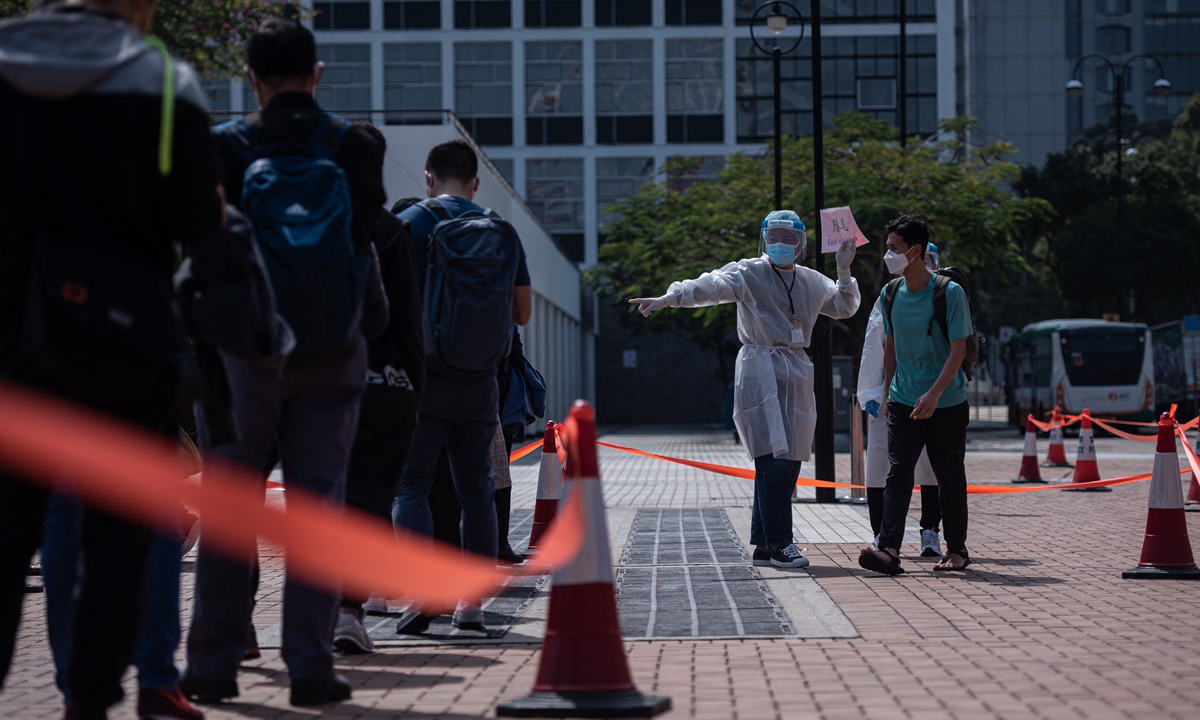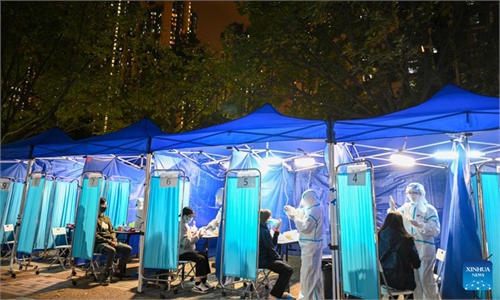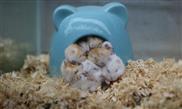Central govt aid to HK to boost public confidence
Residents have anti-epidemic fatigue, infections expected to reach peak next month: experts

People line up for COVID-19 testing in Hong Kong on February 12, 2022, as city authorities scrambled to ramp up testing capacity following a record high of new infections. Photo: AFP
Aid from the central government to help the Hong Kong Special Administrative Region (HKSAR) fight against surging COVID-19 infections will greatly boost public confidence amid a gloomy epidemic situation in the city which is finding it difficult to trace all infections and quarantine people after reporting over a thousand new cases for a fourth day running.The Department of Health reported on Sunday that the city reported new 1,347 confirmed cases, of which 1,345 were domestically-transmitted. The department revealed that among 8,300 locally-transmitted cases, about 14 percent were people aged below 18, 11 percent were aged above 65 and 55 percent were fully inoculated.
The HKSAR government announced on Sunday to lower the age of eligibility for vaccines from mainland's firm Sinovac to 3 years old, starting Tuesday.
Based on the specific anti-epidemic requirements put in place by the HKSAR government, the central government and Guangdong provincial government will dispatch expert teams including testing staff to Hong Kong and help build quarantine and treatment facilities and offer medical, food and living supplies, according to the release on the second Mainland-Hong Kong thematic meeting in Shenzhen posted by the Hong Kong and Macao Affairs Office of the State Council on Saturday.
It said "the central government and Guangdong provincial government will adopt all necessary measures to support Hong Kong to contain the virus spread and stabilize the epidemic."
Hong Kong also asked for rapid antigen test kits and anti-epidemic supplies such as beds, furniture for anti-epidemic facilities, masks and protective gear. It will take measures with Guangdong to ensure a stable supply of fresh food, vegetables and daily necessities to Hong Kong, Chief Secretary John Lee said after he attended the second Mainland-Hong Kong thematic meeting in Shenzhen.
Before moves announced by the central government, several testing institutes had already dispatched teams to Hong Kong. KingMed Diagnostics sent 35 people and its daily testing capacity in the city increased from 36,000 to 70,000, while the BGI Group is expected to put its 16-cabin "Fire Eye labs" into use on Tuesday, the Yangcheng Evening News reported.
Jin Dongyan, a professor at the School of Biomedical Sciences at the University of Hong Kong, believes the aid from the central government will boost public confidence in the epidemic response, as many residents are experiencing fatigue over the virus fight. One reason is that the SAR government has limited support capacity, and another is that people assumed the Omicron variant is not as severe, wrongly assuming it is like the flu.
Expert teams from the Chinese mainland will alleviate the inadequate testing capabilities of Hong Kong as there have been extremely long lines to be tested in communities where cases were detected and there is huge demand for testing in communities, Jin said.
Jin said that building makeshift hospitals to rapidly quarantine close contacts who do not have the conditions for home quarantine, and treating confirmed cases is essential for the preparations of future epidemic. Government advisor David Hui Shu-cheong quoted by Hong Kong media said the Hong Kong epidemic is expected to peak next month.
Hong Kong government said on Sunday that it has placed 4,317 people in home quarantine. Home quarantine is a key measure to quarantine close contacts and confirmed patients with mild symptoms as the novel coronavirus is engulfing the city's medical system. Priority for medical facilities will be given to the critically ill, elderly and young patients, the government said.
As the mainland is a place where experts have sufficient experience and time to handle the more transmissible Omicron and Delta variants as many places across the world have no practical successful experience, Hong Kong has to rely on learning from the mainland and combining both Chinese traditional medicine and Western medicine, Priscilla Leung Mei-fun, a lawmaker and a member of the Basic Law Committee, told the Global Times.
"As now the medical support team from the mainland is coming to assist the HKSAR authorities to fight the outbreak, it would be an unprecedented battle, and some Hong Kong residents should abandon their biased views and accept such sincere help," she said.



